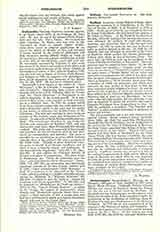

Steffani, AGOSTINO, titular Bishop of Spiga, diplomatist and musician, b. at Castelfranco in the Province of Treviso, in 1655; d. at Frankfort in 1728 or 1730. At the age of twelve he was brought to Munich by Count Tattenbach, who had heard him singing at St. Mark’s in Venice. At the Court of the Elector of Bavaria, where he remained for twenty-one years, he soon obtained the position of court and chamber musician, and afterwards that of director and court organist. In 1673 he went for one year to Rome in order to perfect himself in his art. In 1688 he left Munich, and was attached as musician to the Court of Hanover, where resided the famous philosopher Leibniz with whom he was on intimate terms. Ten years later, in 1698, he took up his residence at the Court of the Elector Palatine, at Düsseldorf, His compositions may be ranged in three classes: (I) his religious music, for example, a “Laudate pueri” for nine voices in two choirs, a “Psalmodia Vespertina” scored for eight voices, a “Stabat Mater” for six voices and orchestral accompaniment (of which it has been said that his great contemporary Alessandro Scarlatti produced nothing finer); (2) his chamber duets, more than a hundred of which are preserved, and which were esteemed the most perfect of their kind, so that the most renowned singers delighted in them; (3) and his operas for the stage, five of which are known to have been written for the Court at Munich, nine for that of Hanover, and at least two for Düsseldorf. In later years, when his high position did not allow him to appear as composer of operas, his secretary and copyist Gregorio Piva signed these compositions for him. In 1695 he published a pamphlet, “Sui Principii della Musica”, in which is shown how music is grounded on nature and science.
But this remarkable man is not only famous for his musical talents. Being ordained priest, probably about 1680, the Holy See made him Prothonotary Apostolic for North Germany, and in recognition of his services for the cause of Catholicism in Hanover, the Holy Father appointed him Bishop of Spiga (the ancient Cyzicus), in Asia Minor. When in 1712 a new church had been built at Brunswick by the Duke Anton Ulrich, who had become a Catholic, the pope sent Bishop Steffani, “Vicario Apostolico delle Missioni Settentrionali,” to perform the consecration and opening service of the new building. But if he was held in such esteem by the ecclesiastical authorities, he was also the confidant and ambassador of temporal princes. A delicate mission was entrusted to him at the various German courts in 1696, and in 1698 at the court in Brussels, for which office he was singularly fitted by his gentle and prudent manners. His merits as a musician were solemnly recognized in London by the Academy of Ancient Music electing him its honorary president for life (1724).
A. WALTER

